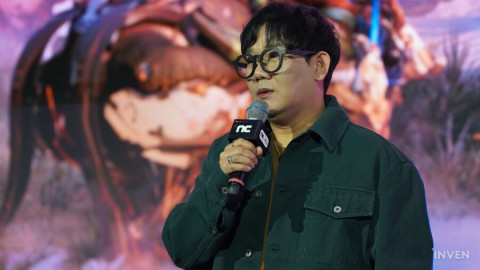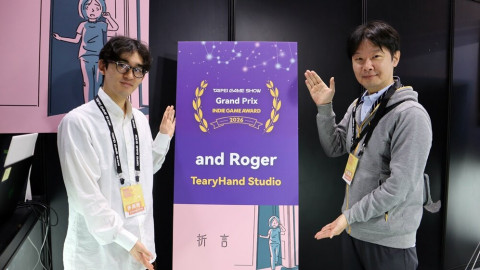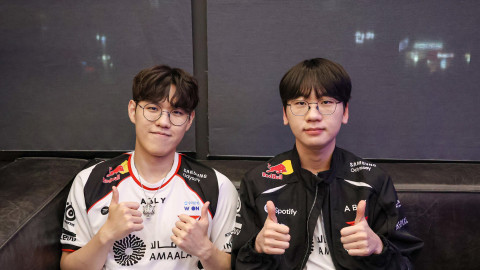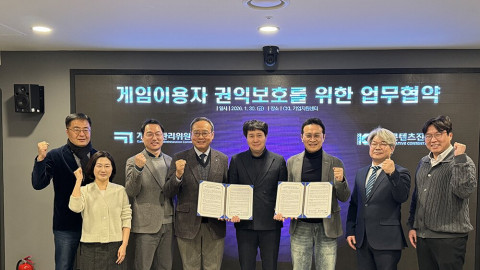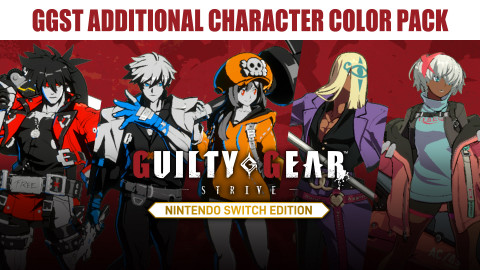
With Peter Dun leaving Evil Geniuses — considered by many fans and industry figures to be one of the best coaching minds in the LCS — a lot of members of the community were concerned with what type of direction the organization was taking. However, with the recent announcement that Kelsey Moser would take on Dun's role as Head of Coaching Staff, the community can assuredly rest easier.
Studying the game and working in a variety of industry roles for the better part of a decade, Kelsey has become one of the most seasoned and respected minds in the North American scene. In the last few years, she has worked a variety of coaching roles with 100 Thieves and EG, with an emphasis on player development. Inven Global had the chance to speak with Kelsey, to discuss her new position, the future of the LCS, and the NA coaching landscape.
You've carried a lower-profile roles in the space over the past two years — working as EG’s Competitive & Collegiate Development Lead, as well as an Academy Broadcast Producer for Riot. How do you reflect on your time in these roles?
As the Competitive & Collegiate Development Lead, I did help with some coaching on Prodigies and Academy — assisting their coaches and mostly doing one-on-ones with the top laners and other players. And then I also did some sub-coaching when they needed a coach or someone needed to take a break.
But my biggest focus was on creating development programming for levels below competitive play. We did collegiate summits, camps for high schoolers — things like this to try to generate interest in general esports careers. Because for me, the biggest question has always been, "How do we create a sustainable ecosystem in any game in the North American scene?" More or less, we don't have an established route of keeping a population of gamers in a single game. That's what I was mostly focused on — thinking of ways to broaden the talent pipeline.
In the Academy Producer role, I found that being part of the offseason scouting team for EG going into 2022 that there were a lot of issues with young NA talent being able to build a brand. So in my producer role, my main focus was creating opportunities for players to brand build and tell their stories at the lower levels, so that they can look appealing or interesting to LCS teams. I found the Academy role extremely rewarding — building a project, having a lot of buy-in from on-air talent on what we were working on, and helping young players with their careers.
You've stated a lot in the past that one of your passions is developing NA talent. Obviously, that's going to be part of this new role, but I imagine that there are a lot of other responsibilities as well. What attracted you to this new role?
I believe that even if my focus is always going to be on talent development, it's very important to have experience in all sorts of roles and responsibilities to fully understand the ecosystem. Leading a coaching staff — basically from the top down — is a role that is important to have experience in, even if it's not a role that I want to keep for years and years to come. It's a role that will help me fully understand the space. So when I have that experience, I can use that to focus on talent development.
That's not to say that won't be a focus for me now — I have a lot of ideas for projects that we can implement below the NA Challengers space, that hopefully we can already start this year. I'm really confident in the coaching staff we'll have for the LCS, and our roster is extremely competitive. So I'm really confident in the team that we're putting together, and I'm hoping that means that I'll have a lot of opportunities to work on building up the rest of the pipeline for us.
You’ve worked many coaching gigs through the years — analyst, assistant coach, head coach, and now the head of coaching staff. What is different about this role?
There'll probably be a lot less hands-on player coaching in this role. It'll be a lot more to do with keeping everything aligned in the vertical. A lot of people don't realize this, but there's usually almost no interaction between Academy and LCS teams in orgs. Usually, with some orgs it's literally just there because Riot makes it there. For me, it's very important that the systems that we teach in LCS get taught in Academy. And working with the coaches in terms of improving their roles and their goals is going to be more of what I face. Obviously, I'm going to keep my pulse on scrims and keep talking to the players to make sure that everything is functioning properly, but I would consider this to be more of an administrative role than a coaching day-to-day role.
You’ve stated before that with 100 Thieves Academy, you enjoyed that they gave you a fair amount of autonomy. Peter has talked about how he felt somewhat limited in his role — has it been established you will have enough autonomy in this role?
There are different reasons why Peter felt limited, because I think Peter likes the hands-on coaching a lot more. So it's possible that that's more why he felt limited in that role, and he would prefer to have a role that allowed him to hands-on coach. That's probably the difference.
I've been told that we will have a lot of autonomy, in the sense that I will be probably the main administrative figure on the ground, while General Manager Andrew Barton is focused on other titles. I respect Andrew a lot — very few orgs have one GM for all titles. And I think he's the GM for all titles but CS:GO. So he's extremely busy —pulled into many places at once — and obviously, the VCT project is going to be very new and require a lot of his attention.
You’re filling in for Peter Dun — someone that you worked with for quite some time at Evil Geniuses, and have expressed respect for. What are some aspects of Peter’s management that you’d love to continue implementing, and what are perhaps some principles you’d like to implement that were not there before?
I think even Peter will admit that he's not the most organized person at times. So from that perspective, I bring a lot of that. A lot of the roles that I've had in the past few years — most people would say that they don't have a lot of transferable skills. But having to organize and manage big projects with a lot of people and moving parts is a skill that I've been honing for the past few years. I think that's something that I could bring, in terms of organization and things like that. For stuff that I'd want to continue — obviously, you had a great deal of passion for League of Legends and for helping younger players, and I feel that's something we had in common.
What is your current optimism about the LCS? With all the budgetary changes, coaching swaps, as well as NA’s recent performance at Worlds — what are your thoughts?
I don't know what you mean by optimism. But going into this next year, I think about the project of the LCS broadcast (because obviously, I was just there in this production role). There are just so many opportunities: there are going to be so many new players stories, theoretically new timeslots, etc. There are a lot of different possibilities that are rising up. From that perspective, I think you can reach different audiences, tell different stories, and make people excited about players.
That's the biggest thing that I really drove on the Academy project, and talked a lot about. We need to tell more personal player stories rather than just focusing on things like, "How good is Team X at setting up Dragon?" Because there's a little bit of fan fatigue in hearing about that. Especially if there's so much focus on the quality of the gameplay. Then people are going to say, "Well, why would I watch LCS when I can watch LCK or LPL?"
That's something that's a little bit frustrating, because even if we have really good teams — one or two really top teams — the overall quality of the league is not going to be the same level in terms of gameplay. Focusing on player stories, rejuvenating interest in the LCS, and rejuvenating player engagement will just level up the overall gameplay and scene as well. Finding different and unique ways to tell stories is very important.
Since you've worked in talent development for several years, I imagine there are at least some lessons learned. Knowing what you know now, would there be anything you would've done differently compared to when you started working on talent development?
First, I would have focused a lot more on the high school scene, because I think that's the biggest issue: the high school and college teams, and getting players engaged in the game. Right now, it's gotten increasingly harder year over year to really devote attention to that. So, I would have focused a lot more on below-amateur play — getting people interested in the game and in esports.

There's a very interesting difference in the average American household and their accessibility to esports as a platform. To get really good, you have to have a support system in place that lets you take a gap year at university — these types of things. And it makes it so that only people with very stable support systems can really go pro, or even afford a PC and have access to the internet. I don't know if League is the title to do it, but that's something that needs to be addressed at some point. Also, I think that every coach is pretty bad on their first team that they coach, so I believe I became a much better coach over time.
Do you believe that's a fairly big advantage of other regions — accessibility and opportunities in esports?
Yeah, I'll speak about my experience in Shanghai because that's where I lived for almost two years.
The difference in general accessibility to League is: you walk into a café and everyone around you is playing League. That's the game you play. Also, the rates that you have to pay to play in the net café are really low — very affordable for pretty much anyone to go to the net café and play for hours. That's something that doesn't really exist in the United States.
The way you experience or play games in the United States is a kid saying, "My friends my age had my parents buy them a new Switch game, so that's the game we're gonna play as a group." There's a lot more lack of attention span for esports titles in the United States, in particular, because it's very clique-based. It's small pockets, instead of having there be this overall prevailing interest in a game.
And especially there's a lack of accessibility to PC gaming and internet as well. Just because if a lot of kids associate gaming also with consoles, there's a lot of difference there in terms of creating an esports atmosphere in North America, and the types of people who are drawn to League as a game is a much smaller aspect of the population. And then within that, it's an even smaller part of the population that's interested in really competing in the game.
When I’ve spoken with casters — it’s considered a very stressful job, and many can’t see themselves doing it very long. I'm curious if the same sense is shared amongst coaches. You’ve now worked in coaching roles for several years. Is working in coaching something you can see yourself doing long-term?
It's interesting, because I've talked to some players and coaches that I've worked with in the past. It's a really, really stressful and demanding job, because a good coach works even harder than their players. And there is a point where you lose the drive. It just happens. It's really hard to say when that will happen, and then there are definitely people who can keep going for decades. But it is one of those things that you have to sacrifice so much of your life to stay at the top and keep being a good coach.
I'm already thinking about my schedule for the coming year — what time I want to come into the office and leave. And it's always like, "Okay, what is acceptable versus not in terms of the amount of work I should be doing and giving to this?" Because there's a lot. So it's hard to articulate. When I was younger, I thought I'd never lose drive and always give 18 hours a day to LoL with no problem. I'm still willing to do that, for now. But as it goes on, it's very much sacrificing your relationships, interests, etc. But at the moment, I think it's really, really hard to think of it as a long-term career opportunity.
What is your opinion on the shakeup of coaches this offseason so far?
It's really hard for fans to know what coaches do. It's really hard for anyone who isn't in the team to know what a coach does. Coaching moves are probably the most mysterious. From that perspective, it feels very strange to see coaches constantly getting overturned or changed, or people with long-term visions replaced — things like this. But it's also really easy for fans to judge, like, "Ah, yes. This was a top team. I've only heard good things about this coach. How dare they? How could they possibly be replaced?" Because there's always something you don't know as a fan.
Do you see a future for a career beyond League of Legends? Are there any other esports, or other areas of life you see yourself pursuing?
Yeah, honestly, there's always stuff. I studied economics, and before I got into League I always thought, "Okay, I'm gonna go back to school and get higher advanced degrees." So I can think of ways that I can combine esports with that, as an eventual goal. Also, broadcasting was really great, and maybe that's something that I can come back to one day. The producing role was really interesting for me. So basically, just a lot of different directions I could go in the future.
-

I write. I rap. I run. That’s pretty much it.
Sort by:
Comments :0

